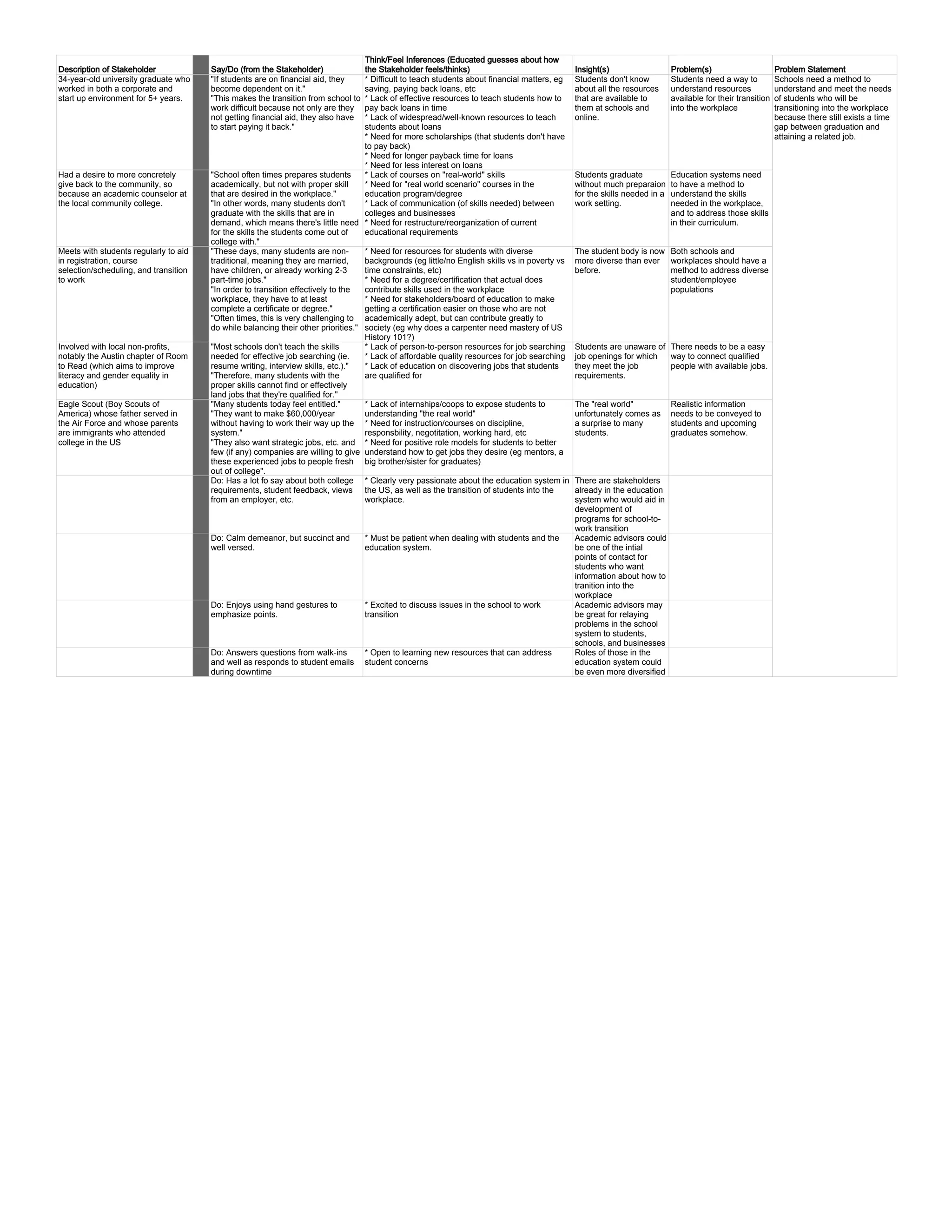Students face difficulties transitioning from school to work due to a lack of financial literacy and real-world skills training. While schools prepare students academically, they often do not teach practical workplace skills or connect students to available resources and jobs. The student population has also become more diverse, with non-traditional students juggling families and jobs while pursuing education, making the transition even harder. There is a need for schools and employers to better understand student needs and skills required in the workforce to help students transition more smoothly. Academic advisors are well-positioned to help address these issues and connect students to useful resources.
